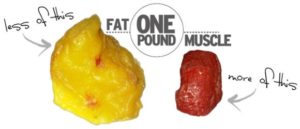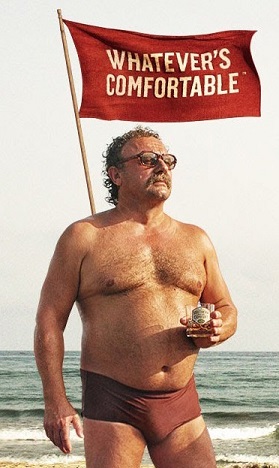How Liquor Makes You Fat!
It’s no secret that high-fat, high-carbohydrate diet is bad for your body. Monitoring your calories and the foods you eat is a must if you are watching your figure. But how about alcohol? Do alcohol calories count more? Can drinking hurt our efforts to shed a few pounds?
Well, actually, new research shows that even small amounts on alcohol may widen your waistline and contribute to more weight gain that you imagined. A mere 3 ounces of alcohol can reduce fat-burning by about a third. But how could this be, you say? Isn’t wine supposed to be good for us?
How Liquor Makes You THICKER
It turns out that when you drink, alcohol is broken down into acetate and your body burns it before any other calorie you’ve consumed or stored. And that includes fat and sugar. But the worse news is that when alcohol is in your system, it is harder for your body to burn fat that’s already stored here. In other words, if you are trying to lose weight, you shouldn’t consume any liquor. Having a drink or two after a workout will undo all that hard work.
 A 5 oz glass of wine has 150 calories, a small beer has 135, and even vodka packs as much. And if you drink with your meal, you will end up consuming about 20 percent more calories, mainly because liquor interferes with satiety. Some studies say that alcohol can actually fool you in believing that you are still hungry. This is especially harmful if you are at a party where tempting foods are everywhere.
A 5 oz glass of wine has 150 calories, a small beer has 135, and even vodka packs as much. And if you drink with your meal, you will end up consuming about 20 percent more calories, mainly because liquor interferes with satiety. Some studies say that alcohol can actually fool you in believing that you are still hungry. This is especially harmful if you are at a party where tempting foods are everywhere.
Ever eaten at White Castle or Taco Bell at 2am sober? I don’t think so.
Here are some tips on how to avoid alcohol.
- Make a decision to stay away from any liquor. You know it’s no good for you and your waistline, so why drink?
- If you do indulge from time to time, be aware of what and how much you are drinking. One beer could have up to 150 calories, a glass of wine has 125.
- Know yourself. We all have weak spots and if you tend to overeat and drink more than you’d like at parties, eat something before you head out. That way, you won’t be drinking on an empty stomach.
- Set your goals. If you’ve made your health and your figure your priority, it won’t be hard for you to turn down that drink. You will be glad you did when you wake up the next morning with lots of energy and ready for your workout.
Drilldown on the details about alcohol and weight loss
Alcohol has calories?
Many people don’t realize that straight alcohol has calories. Just because it’s clear doesn’t mean there’s nothing in there. Alcohol is metabolized very quickly, like sugar. Almost instantaneously. How many calories does alcohol have? Let’s run down the macros:
Proteins: 4 calories per gram (egg whites, animal and seafood flesh, protein powders)
Carbohydrates: 4 calories per gram (starches [potatoes, rice oatmeal, rice, grains, legumes, all wheat products like bread and pasta], vegetables, fruits, candy – all are carbohydrates. Vegetables have much fewer calories than the other carbohydrates.)
Carbohydrates are further divided into complex and simple.
- Complex carbohydrates are natural starches and vegetables.
- Simple carbohydrates are fruit, candy, and refined starches like bread or pasta. Bread, pasta and other refined wheat products are technically classified as complex carbohydrates but the reality is that they are broken down very quickly like a simple carbohydrate.
Fats: 9 calories per gram (nuts, egg yolk, fat from meat, butter, oil, all the good stuff…)
Alcohol: 7 calories per gram. For doom the bell tolls. A 12-oz standard beer (100-155 calories) has about 14 grams of alcohol in it. So 14 grams x 7 calories per gram = 98 calories just from the booze part, not counting the hops and grains part. Wine? Same for a chinsy 5oz pour (125 calories). Plus the sugar from the grape juice.
Don’t tell me that you usually have one glass of wine or beer.
How Liquor Makes You Fat
Below are the 7 main reasons that emphasize how even a little alcohol consumption leads to weight gain – at the very least stopping weight loss.
1. Alcohol calories are “empty calories”
Alcohol is nothing but “empty” calories. It means that the calories we get from alcohol have no nutrients in them. For instance, a 12-ounce beer can contain 155 calories, whereas even a 5-ounce shot of red wine can have up to 125 calories. Drinks that come with mixers like soda or fruit juice, etc., have a more significant proportion of calories.
Imagine adding these few hundred extra calories every night before you sleep. If you want to shed some stubborn pounds, you’d best skip that glass of wine at night.
2. Alcohol becomes the primary source of fuel and leads to fat deposition
The calories in alcohol are indeed more fattening than other calories. Our body produces energy by utilizing glucose from food metabolism. When we take in calories from any form of liquor, our body stops burning consumed food (before and after) and starts burning the alcohol calories first. So when the body begins using alcohol calories as the primary energy source, the surplus lipids and glucose consumed from food end up as fat stored in the adipose cells. It might be surprising to know that a single drink (125 calories) after a workout (-200+/- calories) is powerful enough to undo a lot of your work. That’s how alcohol consumption and weight loss directly contradict each other.
3. Heightened risk of Alcoholic fatty liver
Our liver acts as a “filter” for any unrecognizable foreign substance that enters the body, like alcohol or drugs, etc. Besides, it also holds a vital role in the metabolism of fats, proteins, and carbohydrates.
High liquor intake puts you at a greater risk of developing alcoholic fatty liver disorder. This is when you don’t burn all of these stored calories out of your liver before adding more. You can get fatty liver just from sugar, or being unlucky enough to being predisposed to diabetes. So fatty liver damages your liver, directly affecting the body’s metabolism, and the result is stored carbohydrates and fats. So you see, alcohol has the potential to change the way your body extracts and stores energy from foods. As a result, alcohol consumption becomes a vicious cycle, making it harder for you to lose weight.
4. Alcohol can contribute to excess belly fat
Alcohol is metabolized very quickly, like sugar. Almost instantaneously. And like sugar, the consumption of alcohol causes your blood sugar to spike which in turn spikes your insulin response. Spiking your insulin levels tends to have the effect of bodyfat storage in the midsection. “Beer gut” is an apt term. Processed foods, candies, soda, beer, and alcohol, all spike blood sugar. These cause the fat cells to open up and the calories rush to be stored inside. So, drinking has the same fat creating effects as consuming sugar-rich foods. You can look at alcohol as being a “super sugar”. Remember that it contains 7 calories per gram instead of 4 and goes to the front of the line for metabolism.
5. Alcohol affects judgment cells and satiety
The worst news is even normally highly disciplined people find it difficult to fight the urge to eat bad foods when drunk. Alcohol is regarded as “the destroyer” for a reason as it directly affects the judgment ability in the heart of the moment. The same is the case with decision-making when it comes to food choices, as alcohol lowers inhibitions. Ever gone to White Castle at 2am sober? I don’t think so.
Alcohol triggers the hunger signals in the brain. Hence, it ultimately leads to increased food cravings. It may be surprising to know if you drink while having your meal, you will end up eating about 20% extra calories than usual. It’s because alcohol affects and interferes with satiety. Alcohol fools your mind to believe that you are still hungry, craving for more food. The ultimate result is overeating, especially at parties when tempting bite-sized food is around.
6. The link between sleep deprivation, alcohol, and weight loss
A nightcap before bed may sound great, but you should reconsider it as it’s a direct ticket to sleep deprivation. Latest studies suggest that alcohol tends to increase wakefulness during sleep cycles. Insufficient sleep or sleep deprivation leads to increased cortisol, stress, immune suppression and damages the body’s self repair mechanisms (recuperating from workouts). Recap: so far, alcohol has a direct negative impact on hunger, satiety, energy storage, and fat deposition.
7. Alcohol affects digestion and nutrient uptake
Most of us love the way alcohol inhibits social anxiety. But surprise: alcoholic beverages also inhibit the proper functioning of the digestive system. Alcohol irritates and hinders the proper functioning of the stomach lining and the intestines. This is from the blood sugar spike. Ultimately, it leads to reduced digestive secretions and difficulty in food movement through the digestive tract.
The digestive juices are crucial for healthy digestion. These secretions break down the food into micro and macronutrients that are readily absorbed into the blood and used by the body.
An active metabolism has a lot to do with nutrient management. Regardless of the levels, liquor consumption results in impaired digestion and nutrient absorption.
Yes, this also applies to sugar and refined carbohydrate consumption. Do enough of this and long enough and it can lead to leaky gut syndrome. I hope to write a post on that in the future.
Can you drink Alcohol and Still Lose Weight?
It’s pretty damn hard to do so. In theory, you could adopt a carnivore style diet with green leafy vegetables and only get carbohydrate like calories from the alcohol.
However, that is extremely difficult. 2-3 drinks of alcohol will acidify your stomach and you’ll want to “tamp it down” with some starch. The judgement / willpower inhibiting effects pretty much guarantee you’re screwed. Some people don’t have strong hunger signals so it might work. Of course, booze is still bad for you, but this article is about weight loss (fat loss) and not necessarily health. Everyone knows alcohol is bad for their health. So: “Can you drink alcohol and still lose weight?”
Maybe? Probably not.
Do I have to quit drinking forever?
No, of course not. Just while you are trying to lose weight. You should be able to get away with some while maintaining your new weight. Losing weight is difficult. Your body doesn’t want to do it. Fat is money in nature. Your body likes fat. Our society and ourselves don’t.
How much can I drink?
To maintain your target body composition (bodyfat percentage) once a week or less.
To maintain your weight alone – 2, maybe 3 times per week.
Daily drinking, even one drink will very likely lead to fat and weight gain. Just like a daily cupcake, slice of cake or slice of pizza.

